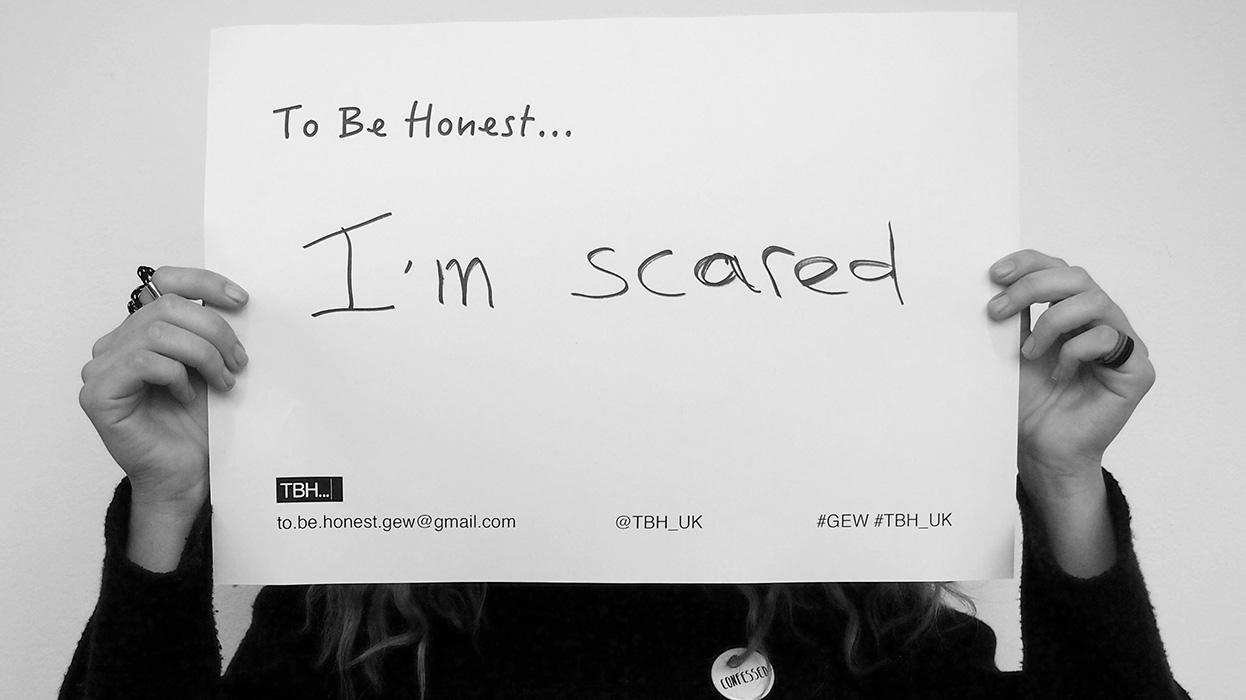Students’ confession booth exposes young people's fear of failure
Primary page content
The anonymous confessions collected online, at start-up hubs, and in an old telephone booth outside Goldsmiths, University of London indicate that young people are hiding their failures to the detriment of both their mental health and the growth of start-up businesses.
Confessors came from a range of different backgrounds but were mostly aged 18-34. The most common theme for confessions was that of personal inadequacy, or, feeling like a fraud.
More than a quarter of confessions were about careers, with 16 per cent based on self-perception, 14 per cent on competence, and 11 per cent on relationships. The rest included failures relating to finance, being misunderstood, and social perception.
What does this mean?
The To Be Honest team argue that for young people entering the workplace or starting their own businesses, sharing doubts is as important as pitching strengths.
In an end-of-project report they explain: “There’s a lot of pressure to project an image of success in the working world, yet everyone stumbles along the way – it’s all part of the essential learning process.
To Be Honest coordinator Marcello Newman says that the expectation for young people to always maintain an appearance of confidence can have a negative impact in the long run, and that businesses could do more to encourage people to talk openly.
“People feel the need to fake it. But to learn from your mistakes and grow your business you have to be honest about those mistakes. When you feel like you don’t know what you’re doing, you’re definitely not alone. I personally find it very tiring to be dishonest.”
The group found the reaction to TBH to be extremely positive: Goldsmiths students and young entrepreneurs at events were really keen to make a confession and responded positively to the project’s concept.
“Some of the confessions got very dark and were hard to read,” Marcello adds. “But there was also a sense of community: that we’re all in this together. There was something refreshing and warm in recognising those common problems.”
Importantly, the group found that through collecting confessions they opened up a dialogue. People found the process cathartic and commented that they felt it was really needed.
The group found that while not many people commented on the confessions posted on Tumblr, almost 1,300 people read them. They hope that the high number of ‘page lurkers’ were identifying with these stories, and perhaps encouraged to open up in future.
Marcello concludes: “We’re not occupational psychologists and we don’t run businesses so we don’t know what the answer is here for how the culture of dishonesty can change, and how we can transfer from anonymous to non-anonymous sharing in entrepreneurship and society.
“But we believe that getting our project out there and raising awareness about this issue is a first step.”
To Be Honest was created by Yumi Amamuna, Norhan El Sakkout, Ben Kreeger, Leah Leslie, Marcello Enea Newman, Daphne Politi and Zosia Poulter
